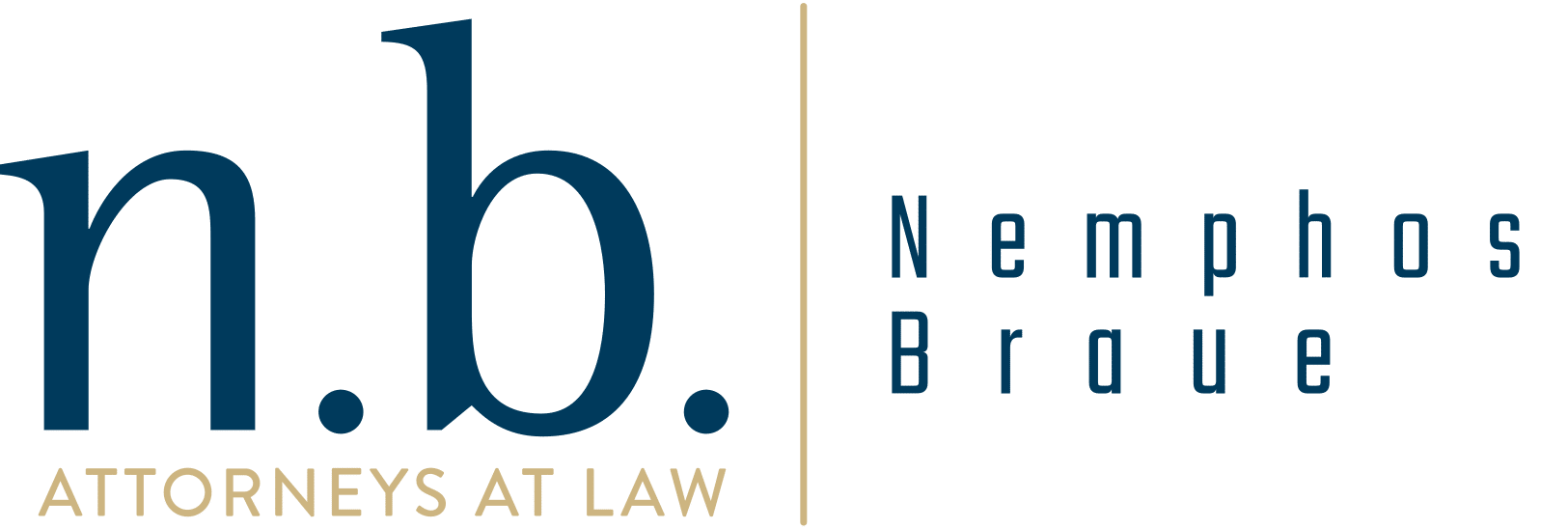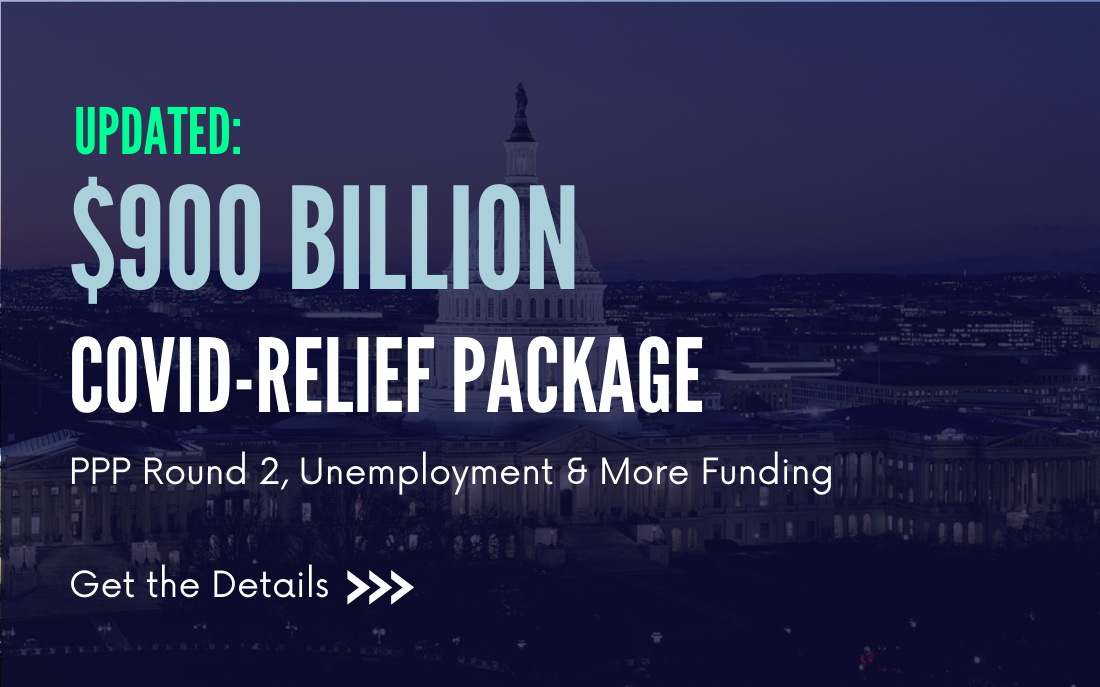PPP Round 2 and COVID-Relief Package: What You Need to Know
Congress has agreed on a $900 billion federal stimulus package, the second largest after the $2 trillion CARES Act passed in March. The proposal now requires the President’s signature for approval.
Included in the proposed package is round 2 of the Paycheck Protection Program (PPP), which will allow some businesses to apply for a second loan. The first round stopped taking applications in August.
This time around, the relief package outlines more than $284 billion in loans for the PPP:
- Available to businesses with fewer than 300 employees and a drop in at least 25% of revenue during the first, second or third quarter of 2020
- Amount available to borrow reduced from $10 million to $2 million
- More flexibility in how the money is spent
- Allows for the deduction of expenses (a change from the first round) and for loan forgiveness to be excluded from income
- Simplified forgiveness process for loans less than $150,000
- $12 billion carved out specifically for minority-owned businesses
- Eligibility expanded to more nonprofits and news outlets
More highlights from the COVID-relief package include:
- Direct stimulus payments, with amount to be confirmed and based on income levels
- $300 weekly federal unemployment boost, plus additional program extensions
- $15 billion in grants for live venues, theaters and museum operators
- $82 billion for K-12 schools and colleges, plus $10 billion for child care providers
- $25 billion in rental assistance and the eviction protection program extended to January 31
- $13 billion in funding for food stamps, food banks and other nutrition services
- $48 billion for vaccine purchases, distribution and COVID-19 testing assistance
- $45 billion to support transportation services
- $7 billion to bolster broadband access
- Payroll tax deferment option extended until the end of 2021
- A tax credit for businesses offering paid sick leave
Check back here for continuing updates and more COVID-19 recaps from the Governor and state legislators.




